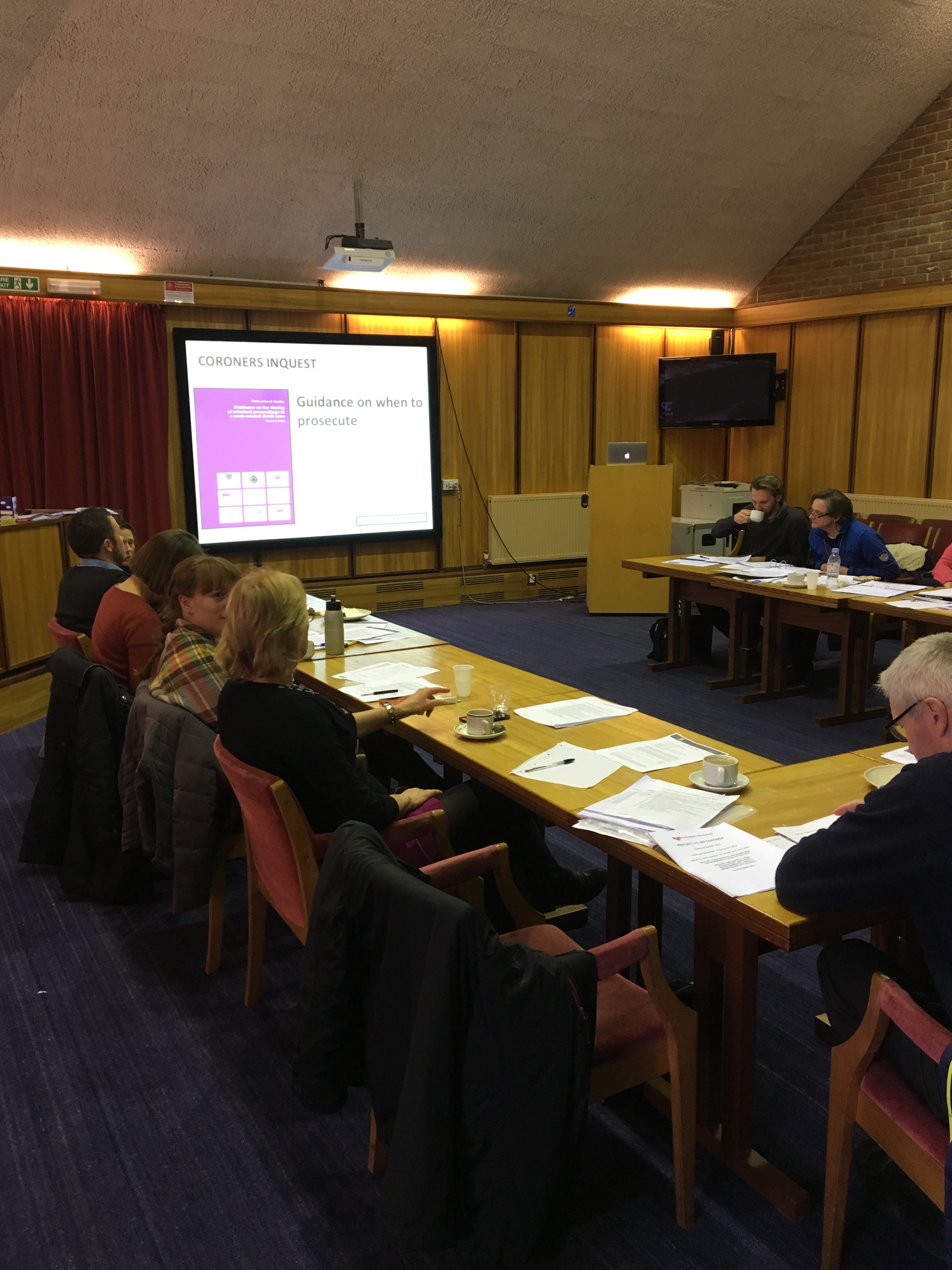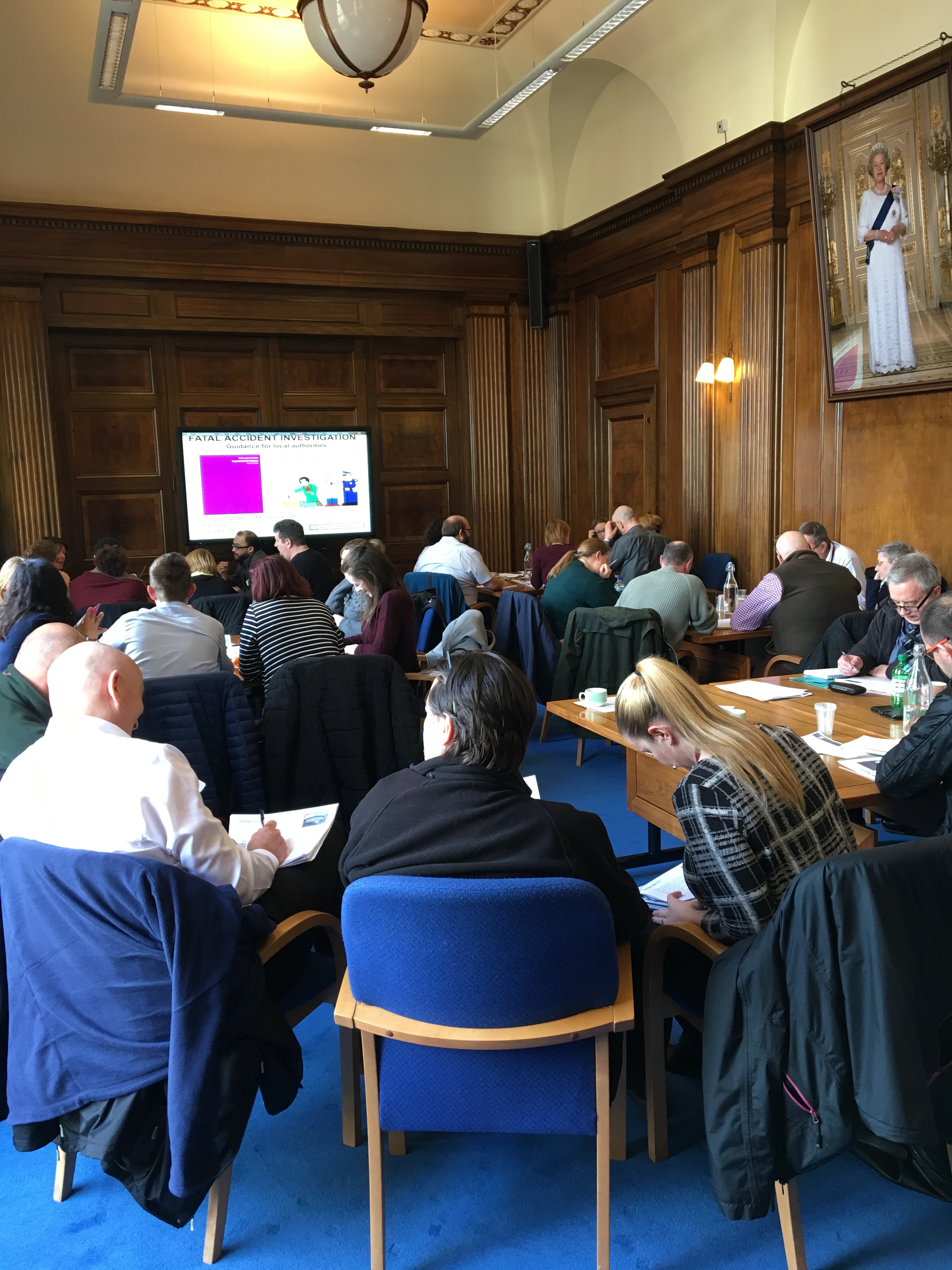I have been working with a local authority recently, helping them with a fatal accident investigation and advising on Coroners Inquests. I’ve attended quite a few over the years assisting officers and families and I run training sessions for officers giving evidence. Unless you have been to one, it’s difficult to fully understand the process and so here are my top ten facts to help families, fatal accident investigators, health and safety practitioners and anyone who may be interested.
Please feel free to share with colleagues and if you have any questions or want any further information please get in touch.
Andy
andy@bespokesafety.com
Bespoke Safety
1. IT’S NOT A TRIAL
Although held in open court, an inquest does not seek to blame individuals or organisations, merely to determine:
Who the person was
When did they die (date and time)
Where did they die
How did they die
Generally, the Inquest is taken up with ‘how’ as the who, when and where is usually known. It is not unusual for lawyers to ask searching questions, especially if it is likely a health and safety prosecution may be considered. The Coroner will normally step in and remind all parties that this is an Inquest and not a trial. Even so, be aware, tensions can run high.
2. WHO IS A CORONER?
Coroners will be a barrister, solicitor or medical practitioner with not less than 5 years standing. They are appointed by the Crown but funded by the local authority in which they operate.
3. ARE ALL DEATHS NOTIFIED TO THE CORONER?
No, only those meeting the following. The death was violent or unnatural, cause of death was unknown or the person died in prison, police custody or another type of state detention. Work related deaths fall into the unnatural / violent death bracket and also include any death where an industrial disease is recorded. On notification from a doctor, police or Registrar, the Coroner then decides whether an Inquest is appropriate – it is not automatic. Coroners Officers will assist in the investigation to determine whether an Inquest is necessary, but it will remain the decision of the Coroner.
4. ARE POST-MORTEMS ALWAYS CARRIED OUT?
No. It is for the Coroner to decide whether a PM is necessary and this forms part of the initial investigation to determine whether an Inquest is needed. Other options available include MRI (magnetic resonance imaging) or CT (computerised tomography) scanning and toxicology reports. The Coroner does not have to ask permission to require a PM and there are 2 types, a general PM and a forensic PM. The majority are general PMs, but where a more detail is required a forensic PM is carried out although it is unlikely that this will be the case for a work related death.
5. IS THERE ALWAYS A JURY AND IF SO WHAT DO THEY DO?
No, the majority of Inquests will be heard without, however, a work related death will be heard with a jury. The Coroner may pose questions at the start of the Inquest for the jury to answer including how the person died and likely cause of death. They retire at the end of the Inquest to agree a response and can be directed by the Coroner in matters of law. The jury can ask questions or ask for clarification and so in that sense, it is similar to a Crown Court environment.
6. WHAT IS AN INQUEST LIKE?, WHO CAN ASK QUESTIONS OR GIVE EVIDENCE?
This is what makes an Inquest different. Before the Inquest, the Coroner will hold a pre Inquest review where the scope of the Inquest is set out and the Coroner decides who to call as a witness. All witnesses must attend and will receive a formal summons to attend. At the pre Inquest, the Coroner will identify ‘Interested Persons‘. These are the only people allowed to ask questions during the Inquest (besides the Coroner and Jury) and can include lawyers acting for Interested Persons, the Interested Person themselves as well as the family of the deceased. This is what makes an Inquest different. As a witness in the past, I have had to answer difficult questions from the family as well as barristers acting for 3rd parties and it’s that open court environment that makes an Inquest different. Given the nature of an Inquest, emotions can run high and they can be very tense affairs. All witnesses giving oral evidence do so on ‘oath’ (swearing on a religious book) or on affirmation (a promise to tell the truth). It is a criminal offence to lie in an Inquest. Witnesses are legally entitled not to answer any questions that may self incriminate.
7. WHAT IS THE OUTCOME?
At the end of the Inquest, the Coroner will set out the Inquest Conclusions (no longer called a verdict). For work related deaths, the most common Conclusions are:
- Accidental death
- Death by misadventure
- Industrial disease
- Unlawful killing
Other Conclusions include:
- Alcohol/drug related
- Lawful killing
- Natural causes
- Open (insufficient evidence to decide on a conclusion)
- Road traffic collision
- Stillbirth
- Suicide
The Coroner concludes the Inquest stating who, when, where and how the person died on a prescribed form and stating one of the above. Where the Inquest has been more complicated or involves additional complex issues, the Coroner can also give a narrative Conclusion to further explain the circumstances leading to a death. The narrative provides a longer explanation of the facts surrounding the death and can include the Coroners or Jurys comments. The narrative is not confined to the 11 Conclusions above but can include other factors e.g. neglect. The narrative can also include answers to the questions that the Coroner posed to the Jury at the start of the Inquest.
8. WILL A HEALTH AND SAFETY INVESTIGATION DELAY AN INQUEST?
The simple answer is no. It is for the Coroner to decide when to hold an inquest, however it is likely that the Inquest will be opened as soon as possible, for it to be adjourned pending an investigation. It is best practice for an HSE / local authority investigation to wait until the Inquest has been concluded before a decision is reached as to any further / legal action. This means, the HSE / local authority will provide an interim report to support the Inquest, but it is unlikely that a final report is provided as the investigation is still ongoing (more to come in Part 2).
9. REPORT TO PREVENT FUTURE DEATHS
At the end of an Inquest, the Coroner can issue a ‘Report to Prevent Future Deaths’ also known as a ‘Reg 28 Report’. Self-explanatory, this is a request made to relevant parties, including HSE / local authorities asking them to provide clarification on how the circumstances contributing to the death could be prevented in the future. For example, a death following a failure of lifting equipment may result in the Coroner asking if arrangements to ensure regular inspection of lifting equipment nationally are adequate. All parties receiving the request must provide a written response within 56 days. Copies of reports can be found HERE
10. CHALLENGING THE CORONERS DECISION
Challenges to the Inquest Conclusions can be made to the High Court via ‘judicial review’.


